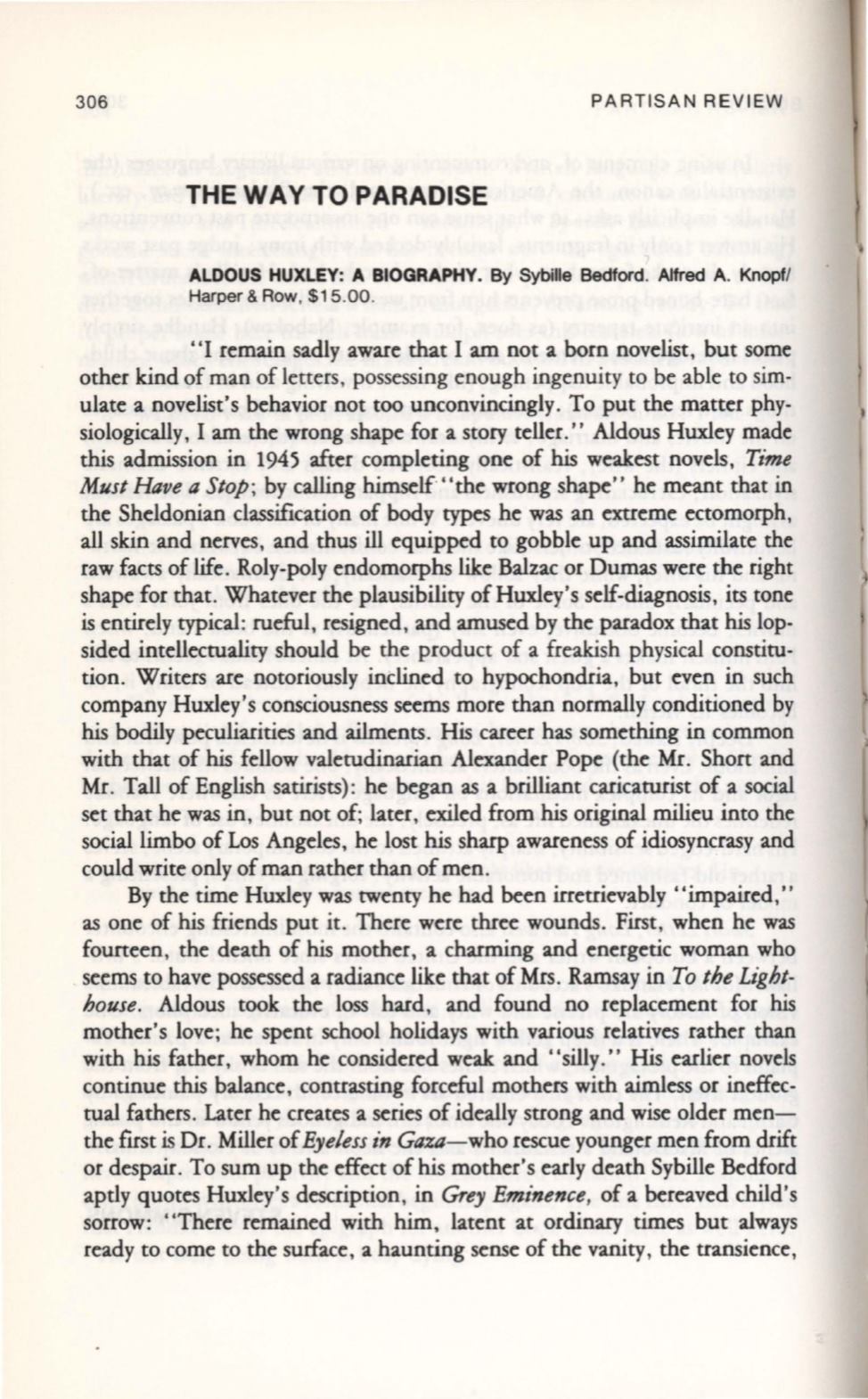
306
PARTISAN REVIEW
THE WAY TO PARADISE
ALDOUS HUXLEY: A BIOGRAPHY. By Sybille Bedford. Alfred A. Knopf!
Harper
&
Row, $15.00.
"I remain sadly aware that I am not a born novelist, but some
other kind of man of letters, possessing enough ingenuity to be able to sim–
ulate a novelist's behavior not too unconvincingly. To put the matter phy–
siologically, I am the wrong shape for a story teller." Aldous Huxley made
this admission in 1945 after completing one of
his
weakest novels,
Time
Must Have a Stop ;
by calling himself "the wrong shape" he meant that in
the Sheldonian classification of body rypes he was an extreme ectomorph,
all skin and nerves, and thus ill equipped to gobble up and assimilate the
raw facts of life. Roly-poly endomorphs like Balzac or Dumas were the right
shape for that. Whatever the plausibility of Huxley's self-diagnosis, its tone
is entirely typical: rueful, resigned, and amused by the paradox that his lop–
sided intellectuality should be the product of a freakish physical constitu–
tion. Writers are notoriously inclined to hypochondria, but even in such
company Huxley's consciousness seems more than normally conditioned by
his bodily peculiarities and ailments. His career has something in common
with that of
his
fellow valetudinarian Alexander Pope (the Mr. Shon and
Mr. Tall of English satirists): he began as a brilliant caricaturist of a social
set that he was in, but not of; later, exiled from his original milieu into the
social limbo of Los Angeles, he lost his sharp awareness of idiosyncrasy and
could write only ofman rather than of men.
By the time Huxley was twenty he had been irretrievably "impaired,"
as one of his friends put it. There were three wounds. First, when he was
founeen, the death of
his
mother, a charming and energetic woman who
seems to have possessed a radiance like that of Mrs. Ramsay in
To the Light–
house.
Aldous took the loss hard, and found no replacement for his
mother's love; he spent school holidays with various relatives rather than
with his father, whom he considered weak and "silly." His earlier novels
continue this balance, contrasting forceful mothers with aimless or ineffec–
tual fathers . Later he creates a series of ideally strong and wise older men–
the first is Dr. Miller of
Eyeless in Gaza-who
rescue younger men from drift
or despair. To sum up the effect of his mother's early death Sybille Bedford
aptly quotes Huxley's description, in
Grey Eminence,
of a bereaved child's
sorrow: " There remained with him, latent at ordinary times but always
ready to come to the surface, a haunting sense of the vanity , the transience,


